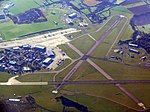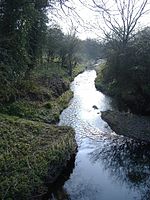Royal Agricultural University
1845 establishments in EnglandAgricultural universities and colleges in the United KingdomCirencesterEducation in GloucestershireEducational institutions established in 1845 ... and 3 more
Organisations based in England with royal patronageRoyal Agricultural UniversityUse British English from August 2015
The Royal Agricultural University (RAU), formerly the Royal Agricultural College, is a public university in Cirencester, Gloucestershire, England. Established in 1845, it was the first agricultural college in the English-speaking world. The university provides more than 30 land-based undergraduate and postgraduate programmes to students from over 45 countries through the School of Agriculture, the School of Business and Entrepreneurship, the School of Equine and the School of Real Estate and Land Management.
Excerpt from the Wikipedia article Royal Agricultural University (License: CC BY-SA 3.0, Authors).Royal Agricultural University
Brinkworth Road,
Geographical coordinates (GPS) Address Nearby Places Show on map
Geographical coordinates (GPS)
| Latitude | Longitude |
|---|---|
| N 51.543055555556 ° | E -1.995 ° |
Address
Brinkworth Road
Brinkworth Road
SN15 4JL , Dauntsey
England, United Kingdom
Open on Google Maps








